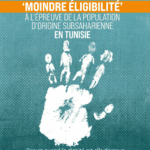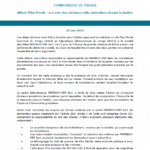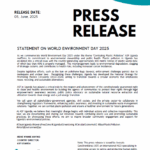While domestic work plays an essential role in Tunisian society, domestic workers continue to face numerous challenges and obstacles that compromise their rights and protection. This Policy Brief examines the Tunisian legal framework regarding domestic work, highlighting gaps and advancements, as well as the international instruments ratified by Tunisia. It also identifies obstacles to the effective implementation of the law and proposes concrete recommendations to strengthen the protection of domestic workers in Tunisia.
Key Highlights:
– The Tunisian legal framework: The policy brief begins with an analysis of the Tunisian legal framework regarding domestic work, highlighting laws and recent amendments, such as Law No. 37 of 2021, which regulates domestic work and prohibits child employment. However, some gaps remain and need to be addressed to ensure comprehensive protection for domestic workers.
– Obstacles to law enforcement: The brief identifies several specific obstacles faced by labor inspectors and social workers in accessing domestic work sites, compromising the effective implementation of the law and the protection of domestic workers. These obstacles include a lack of awareness of domestic workers’ rights, fear of reprisals, and difficulties in accessing work sites.
– International instruments: The brief highlights treaties and conventions such as ILO Convention 189 on Domestic Workers and the United Nations Convention against Trafficking in Persons. It emphasizes the importance of ratifying and implementing these instruments to ensure equal rights and protections for domestic workers.



